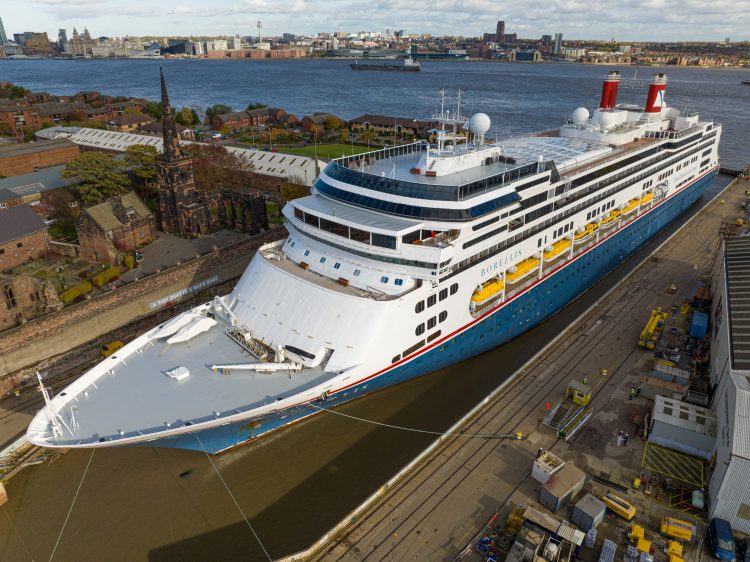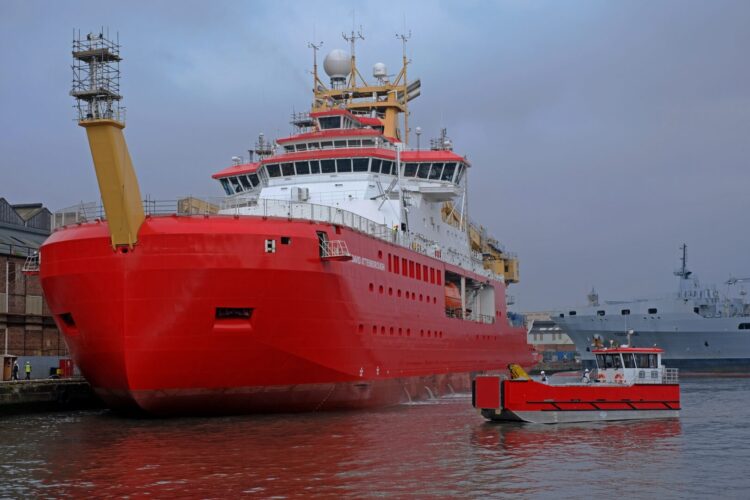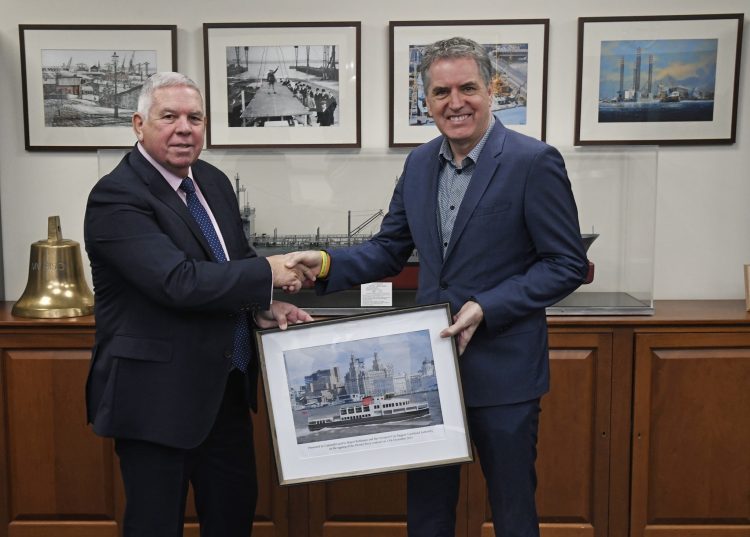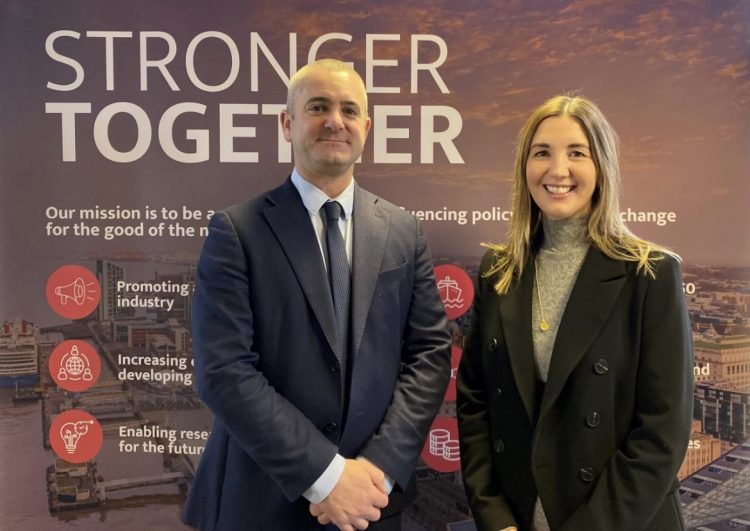Cammell Laird ‘turns corner’ after tough few years
Days after it is reported shipbuilder and repairer Cammell Laird is to build the new £36m Mersey Ferry the company reveals it is returning to operational profit after several ‘challenging’ years. Tony McDonough reports

Merseyside shipbuilder and ship repair business Cammell Laird has “turned a corner” and is back in operational profit as it continues to navigate its way out of challenging years.
Addressing maritime industry representatives at the monthly Mersey Maritime Face-2-Face networking event, Cammell Laird managing director Mike Hill said the business had undergone a “complete overhaul” over the past couple of years.
Based in Birkenhead, Peel Group-owned Cammell Laird now operates as part of a wider group of shipbuilders and shiprepairers called APCL Group.
This also includes A&P Group, as well as Birkenhead engineering firm Neway Industrial Services. This group comprises shipyards in Birkenhead, the North East and the South West of England.
It also includes project management specialist A&P Australia. This maritime powerhouse has a combined turnover of £280m and employs more than 1,400 people.
In Birkenhead Cammell Laird currently employs around 650 people with an additional 1,500 contractors on site. In the last few years it has endured, according to chief executive David McGinley, “some of the most challenging times in the group’s history”.
In the last few days it has had some good news to report. LBN revealed earlier this week that the business had secured the £36m contract to build the new Mersey Ferry. It has also settled a potentially disruptive pay dispute with unions. It’s latest annual financial results are due to be published shortly.
In October 2016, workers at Cammell Laird started building RRS Sir David Attenborough for the Natural Environment Research Council. It was, said Mr McGinley, “one of the most technologically advanced projects ever undertaken in the shipyard”.
Delays due to COVID-19 as well as “further engineering and design challenges” meant the formal handover of the vessel to NERC did not take place until November 27, 2020. Work on the ship continued at the yard until it departed the Mersey on July 1, 2021.
This contributed to five straight years of losses at the company and had led to a root and branch reform of the business. Speaking at the Mersey Maritime event Mike Hill said the organisation had now gone through a “huge transformation”.
“We delivered that contract but it caused us significant challenges,” he said. “We had an obligation to deliver the RRS Sir David Attenborough and we made it a priority at the time.
“We had to think about where we were as an organisation. We had some questions to answer. What was our strategy going forward?
“But we felt as an organisation that we had an obligation to our workforce and the wider maritime region. So we set ourselves on a journey of growth within the manufacturing / new build sector.
“We had the capability, we had the infrastructure, we had the highly skilled people, we had the aspiration and the drive and commitment of the workforce and equally from our supporting shareholders.
“We had to look at where we could strengthen ourselves as a business. It was a journey of overhaul from senior management across all aspects of the business.
“And that created significant opportunity within. There are lots of people who have come through the business.
“We also had to do a lot of outward assessment – at the supply chain. It was about asking if they still have the same commitment and drive to join us? There was lots of external engagement. They are key to our delivery.
“After all this, we stand here today and we have completely turned the corner. It is fair to say that with efforts from everyone that we are in an operational profit right now and we have an order book across various sectors that is multiple years.”
For more than a decade Cammell Laird has been servicing the nine-strong Royal Auxiliary Fleet. It accounts for 65% of the company’s annual turner and has been, says Mike, the “backbone of the yard” over recent years.
That contract is up for renewal in 2028 for another possible 10 years and Mike adds the company will need to start preparing its bid by 2026.
However, thanks to the overhaul of the business, Cammell Laird’s growth and diversification is gathering pace. Mike explained: “There has been significant growth in both the manufacturing and the engineering markets.
“In commercial ship repair we have seen significant growth and dock utilisation has rocketed. We have multi-ship, multi-year framework agreements with several customers.
“Some new ship repair customers have come on line. We had Borealis in last year, our first cruise ship in 20 years. And we are in the final stages of agreeing a multi-ship, multi-year agreement with Fred Olsen.
“On the manufacturing side we are working largely for BAE on the Type 26 destroyers. We have a contract for the main machinery blocks and an invitation to tender for the upper block and bow sections.
“And we are working with BAE Barrow on the Dreadnought class submarines. They have engaged with us to talk about a multi-year programme for around 160 units (different sections of the vessels) for all their four vessels. That is a significant opportunity for us.”



Mike also talked about the critical importance of Cammell Laird’s apprenticeship programme, not just in terms of the company’s growth and sustainability, but also in the context of skill shortages across the UK economy.
He started his working life at Cammell Laird as an engineering apprentice back in 1996. Each year, the business takes on 50 new apprentices and currently has 171 trainees on its books.
“Apprenticeships are incredibly important for us and for the local region,” added Mike. “We do appreciate the skills shortage, not just in Birkenhead, but across the country. So we know we need to play our part in addressing that.
“We must sustain highly skilled people at the yard – it is an absolute necessity. We employ Polish and Romanian engineers at the yard. They are fantastic, however that is not sustainable and we need to develop more skilled people.
“The good thing about our apprenticeship programme is that we don’t have to sell it. For the last 50 vacancies we had we received around 800 applications. There is huge maritime interest.
“Currently around 5% of them are female and they are doing exceptionally well in what has traditionally been a male-dominated environment.”

